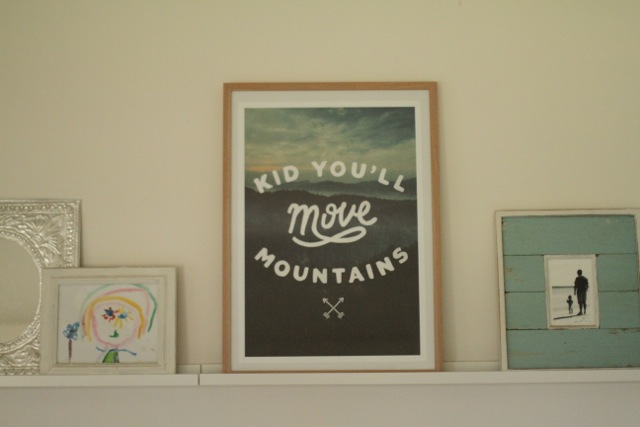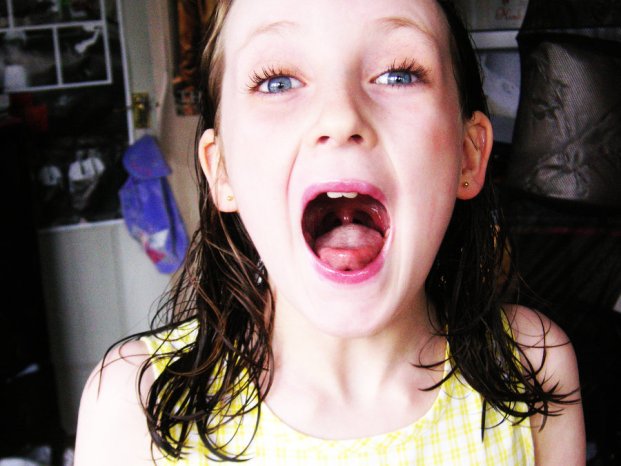Maybe it’s the result of a big year, or it’s just what happens when your baby turns two but I have a secret that I need to let out and it has been crippling me.
Over the last few months, a phenomenon has been growing in our house and it is snowballing.
We are your average Australian family: two children, two businesses between us and a whole gang of friends. We walk to school, save for our annual holiday and hope our kids grow up to be happy.
A parenting philosophy that we hold quite strongly is that we set the culture for our family. Not social media, not our past family history or our failures. We want to do no harm and raise good humans. Humans who are kind to people, little people who understand that privilege is not a right afforded to everyone and that the earth we walk on is precious.
We are everyday people who struggle to find socks that match. We hug and sing, read books at night and occasionally bake treats for our neighbours. Family culture is not something that just happens, it is every little decision that we involuntarily or intentionally make.
What is your family culture?
Are there parts of your everyday environment that you want to change?
Lately, our culture has been sliding to a place that we never imagined it would. Words are escalating and tempers are rising, just as spring shifts to summer. I have noticed the tone in our days change ever so slightly and we don’t like it. Actually, I hate it.
I realised recently, in the midst of a stressful drive on the way back from shopping, that something needed to change. We were driving with my two and four-year-olds in the back seat and the level of conflict in our car was peaking. I stopped at the lights and turned around and shouted out loud at my babies.
They looked at me like the emoji with two wide, surprised eyes in shock. I turned back to the road and accelerated, ashamed of losing my grip. Quietly from the back seat in our car, I heard my four-year-old whisper,”Mummy, we are not a yelling family.”
I didn’t know whether to laugh or cry, I was so impressed that he had picked up the culture of our family but so guilt-ridden by my act of rage.

Are you a Mother or Father of small children? Do you struggle in those moments of overwhelmed-ness and want to yell so loud that it breaks the sound barrier?
I have been thinking about this part of my life and am so desperate to make a change. I don’t want to be known as the Angry Bear Mum. I don’t want to be the person who screams at the telemarketer over the phone because I know that I will never meet them. I don’t want to be the person who takes my anger out on the post office agent because they have lost my parcel.
I want to be known for the way I love humans.
I want to be known by my acts of kindness, not my acts of rage. There are little moments in our family culture that impact the overall tenure. There are annoying little things that can ruin the whole environment. We, the adults, set the tone in our homes. Not the children—they are immature because they have not grown yet. It is the responsibility of the adult in the environment to set the atmosphere and to not allow the little to overshadow the large.
There is a proverb that says it this way:
“Catch the little foxes before they ruin your vineyard.” ~ King Solomon
Here are some thoughts I am implementing to stop the tirade from pouring out of my mouth in the midst of a difficult moment.
1. Find the pause button.
Imagine if we could play a movie of those moments of intense, emotional reaction and see the result of our reactions. What if there was a secret recording of our quiet, private moments with our closest people—would we be okay with the genre of the movie? I am learning to press pause in the midst of conflict. Whether it be saying out loud “Can we just press pause here and come back to it later?” or internally saying to myself “You need some space.” Emotions snowball and unless we find a way to play the moment forward and gain perspective, often we will regret what comes pouring out of our mouths.
A quick tool: Step back and say “I need to find perspective and I am not going to find it in a heated emotional exchange.”
2. Find your voice.
Sometimes rage rises because there is a part of our life that is not finding its voice and is creating a mounting pressure of emotion. Malala Yousafzai said it profoundly in her book I am Malala.
“We realise the importance of our voice only when we are silenced.”
Do you feel silenced? Is the rage that is exploding out onto the people you love, coming from a place that you are unable to control? Maybe a boss at work is deflecting your opinions. It could be that you are a stay at home mum who feels isolated and uninspired. Maybe it has been too long between taking a break and having a deep breath of refreshing holiday, where you can talk openly and honestly with your partner.
No matter where the mute button has been pressed in our lives, it is important that we find valid forms of expression to find our voices again. When we feel heard, we respond so differently in moments of intense stress. Take time to find your voice again.
A quick tool: Step back and say “Where do I feel that I have lost my voice and who can help me rediscover it again?”
3. Find the best possible reason.
Life is easier if we look for the best possible reason in our days rather than the worst. When we are angry with our partners, sometimes it comes from believing the very worst case scenario rather than the best. Rather than going straight to the worst reason for our children’s behaviour, what about finding the best reason? Brene Brown has helped me over the last season of novice motherhood to reframe how I see the worst parts of our humanity.
“You are imperfect and you are wired for struggle, but you are worthy of love and belonging.”
Every time I look toward the bigger picture in my children’s behaviour, everyone wins. Each time I believe the very best in my partner’s behaviour, we both win. When I take the time to believe the very best of a stranger who is reacting in a way that is demeaning, my response is calmed.
A quick tool: Step back and ask “What is the very best possible explanation for this behaviour”
The bigger picture of our family environments impacts each and every one of us. We, as parents, are responsible for the culture that is set in our home and every time we rage and scream, the people who are most impacted are the ones that are closest.
Here is my confession: I am trying to stop yelling at my family and return back to my former stance that “we are not a yelling family.” How about you?
Author: Amanda Viviers
Image: Mogsiewok/Deviantart; Courtesy of Author









Read 0 comments and reply